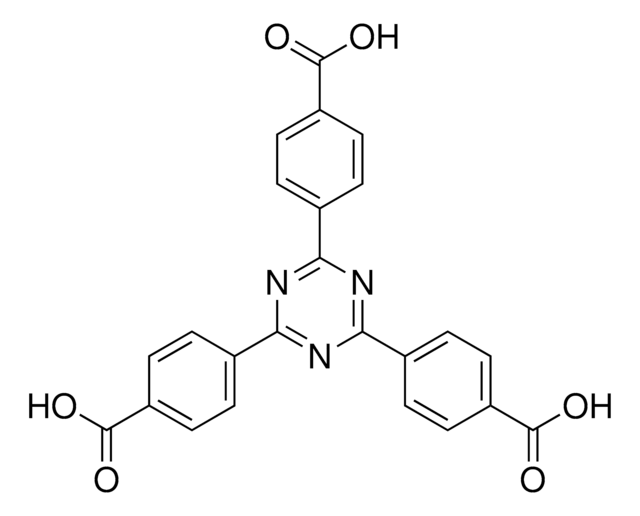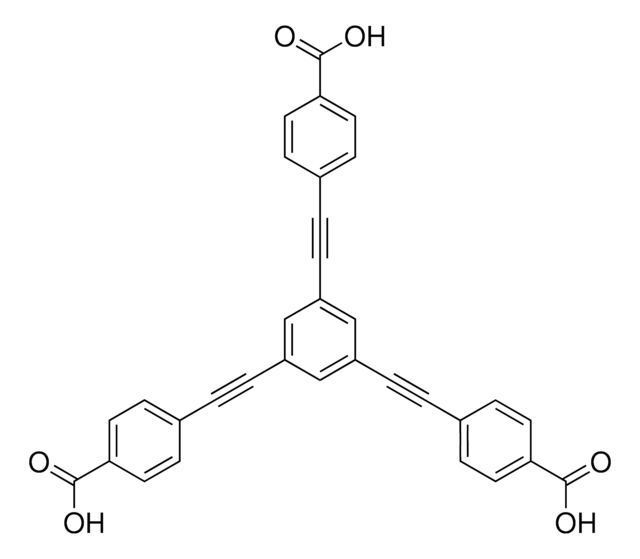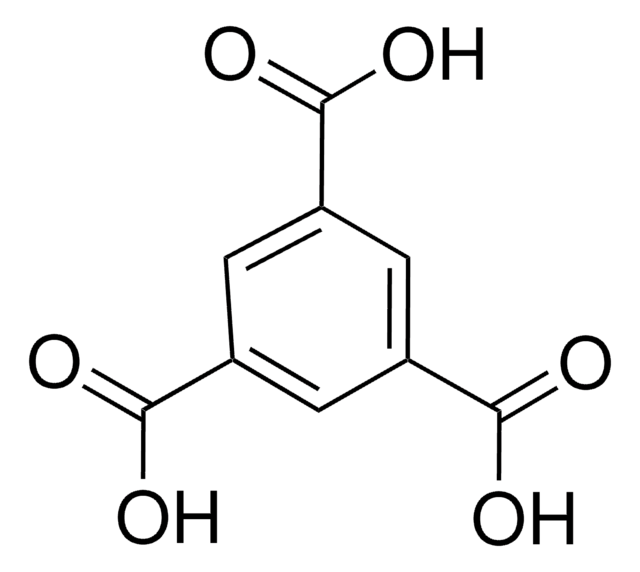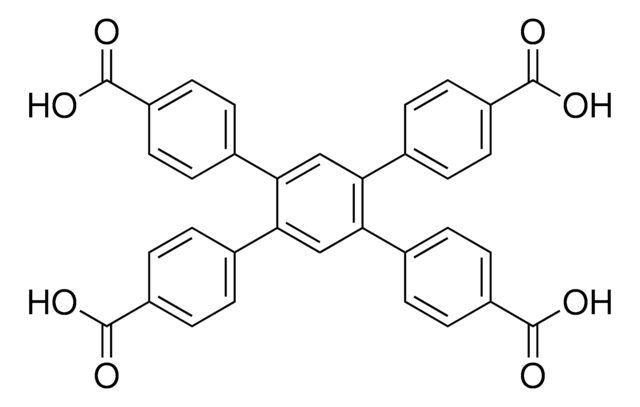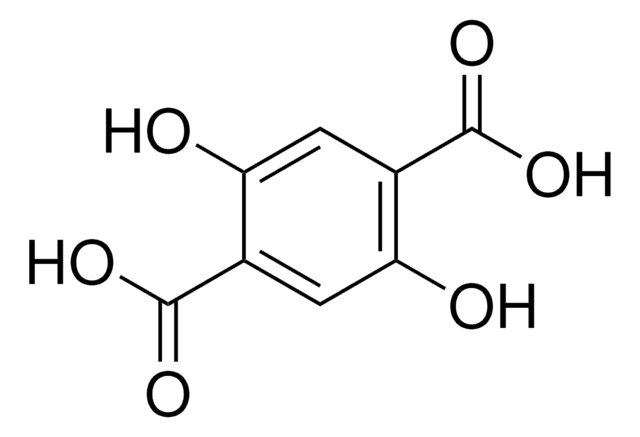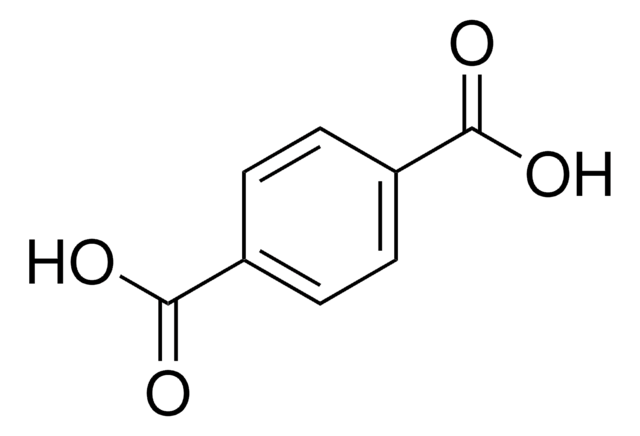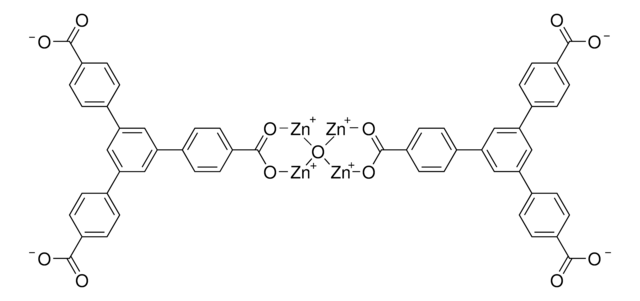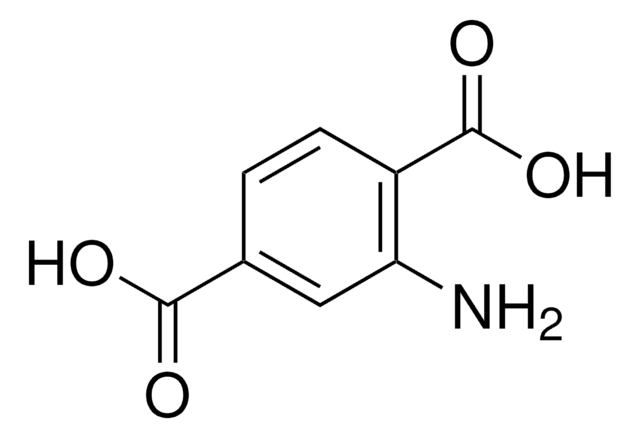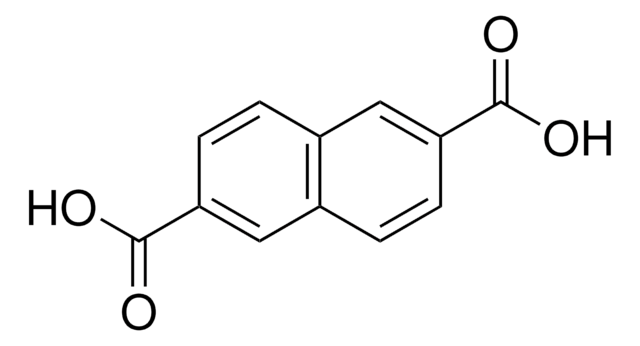686859
1,3,5-Tris(4-carboxyphenyl)benzene
≥98%, ≤20 wt. % solvent
Synonym(s):
4,4′,4′′,-Benzene-1,3,5-triyl-tris(benzoic acid), H3BTB
About This Item
Recommended Products
Quality Level
Assay
≥98%
form
solid
greener alternative product characteristics
Design for Energy Efficiency
Learn more about the Principles of Green Chemistry.
sustainability
Greener Alternative Product
impurities
≤20 wt. % solvent
mp
322-327 °C
greener alternative category
SMILES string
OC(=O)c1ccc(cc1)-c2cc(cc(c2)-c3ccc(cc3)C(O)=O)-c4ccc(cc4)C(O)=O
InChI
1S/C27H18O6/c28-25(29)19-7-1-16(2-8-19)22-13-23(17-3-9-20(10-4-17)26(30)31)15-24(14-22)18-5-11-21(12-6-18)27(32)33/h1-15H,(H,28,29)(H,30,31)(H,32,33)
InChI key
SATWKVZGMWCXOJ-UHFFFAOYSA-N
General description
Application
Signal Word
Danger
Hazard Statements
Precautionary Statements
Hazard Classifications
Aquatic Acute 1 - Aquatic Chronic 1 - Eye Irrit. 2 - Flam. Sol. 1 - Skin Irrit. 2
Storage Class Code
4.1B - Flammable solid hazardous materials
WGK
WGK 3
Flash Point(F)
Not applicable
Flash Point(C)
Not applicable
Personal Protective Equipment
Choose from one of the most recent versions:
Already Own This Product?
Find documentation for the products that you have recently purchased in the Document Library.
Articles
Metal-organic frameworks, a subset of coordination polymers, represent a powerful new tool for a plethora of alternative energy applications. MOFs are readily available using simple synthetic strategies that supply tailored, high surface area materials.
Global Trade Item Number
| SKU | GTIN |
|---|---|
| 686859-1G | 4061832759623 |
Our team of scientists has experience in all areas of research including Life Science, Material Science, Chemical Synthesis, Chromatography, Analytical and many others.
Contact Technical Service